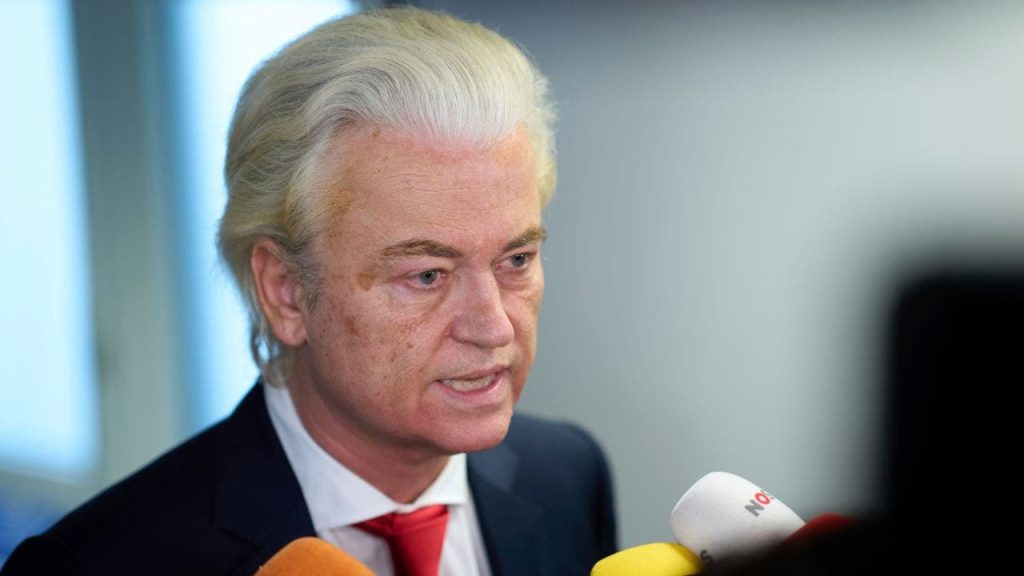In a dramatic political shift, the Party for Freedom (PVV), led by populist figure Geert Wilders, has withdrawn from the Dutch governing coalition due to disagreements over immigration policies. This withdrawal not only ends the coalition’s tenure, which lasted less than a year, but also signals the looming prospect of snap elections in the Netherlands. Wilders’s insistence on stringent measures regarding asylum policies led to the fallout, raising questions about the future of the government and the political landscape in the country.
| Article Subheadings |
|---|
| 1) Political Turmoil as Coalition Collapses |
| 2) Wilders’ Stance on Immigration |
| 3) Government’s Response and Next Steps |
| 4) Implications of Wilders’ Withdrawal |
| 5) The Rise of Right-Wing Politics in Europe |
Political Turmoil as Coalition Collapses
On Tuesday, the PVV decisively opted out of the ruling coalition, effectively leading to its dissolution after less than one year in office. The coalition was initially formed with high hopes but has been plagued by continuous conflict and disagreements among its members. Wilders’s announcement came as a shock to many, including Prime Minister Dick Schoof, who had not publicly commented on the decision as of late Tuesday. The withdrawal will undoubtedly impact the political stability of the Netherlands, particularly with the prospect of snap elections on the horizon.
Wilders’ Stance on Immigration
Wilders has been a vocal advocate for stringent immigration policies, often facing criticism from multiple fronts for his hardline stance. His demands included ten strict measures aimed at reducing asylum applications, such as freezing new applications and imposing limits on family reunification. These proposals were not met with agreement from the three other coalition members, leading to frustration that ultimately prompted Wilders to withdraw the PVV from the government.
“No signature under our asylum plans… The PVV leaves the coalition,”
Wilders stated on social media, emphasizing the untenable position he felt he was in.
Government’s Response and Next Steps
As the news of the coalition’s collapse spreads, the remaining coalition partners, consisting of other political factions, are contemplating their options. They may attempt to continue governing as a minority administration or could choose to call for new elections later in the year. Following Wilders’s announcement, Prime Minister Schoof quickly convened an emergency Cabinet meeting to address the implications of this sudden political shift. The response to this crisis will likely determine the future trajectory of governance in the Netherlands.
Implications of Wilders’ Withdrawal
The immediate consequence of Wilders’s withdrawal from the coalition may be significant political instability. His party had previously secured a considerable share of the vote, garnering around 23% in the last elections, but recent polling suggests a decline to about 20%. The shift may give competing parties, particularly those from the left, an opportunity to gain ground. Dilan Yesilgöz, leader of a rival political faction, characterized Wilders’ decision as “super-irresponsible,” reflecting the contentious atmosphere surrounding the unfolding events.
The Rise of Right-Wing Politics in Europe
Wilders’ actions are emblematic of a broader trend observed across Europe, where right-wing parties have seen increased support amidst rising skepticism toward the EU and widespread tension over immigration issues. Similar political dynamics are playing out in other European countries, including Poland, where conservative candidate Karol Nawrocki recently won the presidential election. The situation raises the question of whether this trend will continue to grow, significantly shaping the future of European politics.
| No. | Key Points |
|---|---|
| 1 | The PVV has withdrawn from the governing coalition over immigration disagreements. |
| 2 | Geert Wilders demanded tougher asylum measures which were opposed by coalition partners. |
| 3 | The coalition’s collapse raises the potential for snap elections in the Netherlands. |
| 4 | Other political parties may gain momentum from this political upheaval. |
| 5 | This event is part of a larger pattern of rising right-wing parties across Europe. |
Summary
The sudden exit of the PVV from the Dutch coalition government represents a significant turning point in the country’s political landscape. The ensuing uncertainty about governance and the possible call for snap elections reflects the intense divisions currently surrounding immigration issues. This incident may also contribute to shifting dynamics in European politics, where right-wing factions are increasingly gaining traction amid broader socio-economic concerns.
Frequently Asked Questions
Question: What led to the withdrawal of the PVV from the coalition?
The withdrawal was prompted by disagreements over immigration policies, specifically due to the refusal of coalition partners to agree to Geert Wilders’ proposed tougher asylum measures.
Question: What are the potential next steps for the Dutch government?
The remaining coalition partners may opt to continue governing as a minority or call for snap elections to seek a renewed mandate from voters.
Question: How does this situation reflect broader trends in European politics?
The developments in the Netherlands mirror a rising wave of support for right-wing parties across Europe, particularly concerning immigration and European Union skepticism, with similar trends observed in countries like Poland and Germany.
